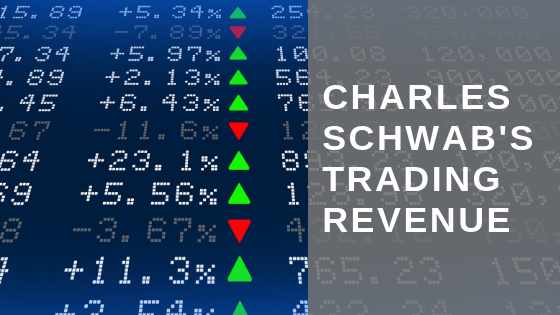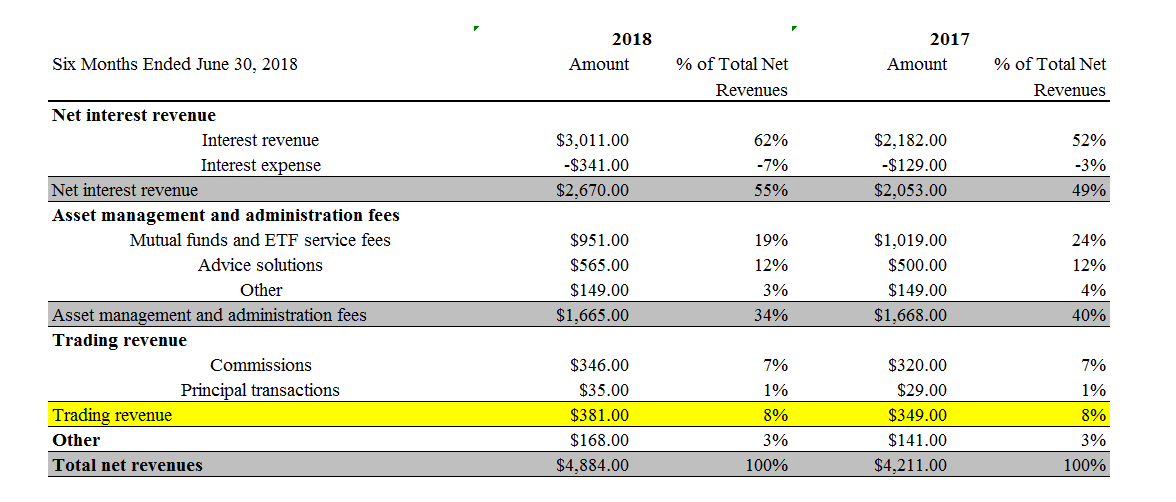This morning JP Morgan Chase announced their new commission-free mobile brokerage platform, a trading app.
New accounts will get 100 free trades during their first year and if they maintain a balance greater than $15,000 they will continue to get 100 free trades per year. Chase Private clients, accounts with balances of at least $250,000, will always have commission-free trades.
The discount brokers, Charles Schwab being one of them, sold off on the news.
With news like this, the question to ask is how much revenue does Schwab even generate from trading?
According to Charle Schwab’s Q2 2018 10Q, the company generated about $381 million in the six months ending June 30, 2018. That is 8% of its total revenue
JP Morgan’s commission-free trading app is not the first one. Robinhood has been around since 2013 and it offers commission-free trade regardless of your account size.
Even with Robinhood and Schwab lowering its commission rate to $4.95 at the beginning of 2017, in the first six months of 2018 Charles Schwab grew its total trading revenue 9% year-over-year.
JP Morgan’s new mobile trading platform may convert some existing Schwab retail clients and it may win potential new. But not enough to wipe out Charle Schwab’s trading revenue.
Plus, Charles Schwab never wants its commission pricing to be a barrier in choosing Schwab over a competitor. When Fidelity lowered its commission rate to $4.95 Charles Schwab did too. If Schwab needs to start offering commission-free equity trades — Schwab already offers commission-free trades on its ETFs — then they will do so.
Cash is King
JP Morgan can offer free trades because they’re expecting to make more money offering their full suite of banking services to new brokerage accounts. Probably the biggest money maker for JP Morgan will be the net interest margin they make off the cash balances.
This is Schwab’s biggest money maker too.
In the first six months of 2018, Charles Schwab generated $4.8 billion in revenue. Over half of Schwab’s revenue, 54%, is its Net Interest.
Even though Charles Schwab is thought of as a discount online broker, they are more like a bank. The bulk of their revenue comes from the interest they earn on interest-earning assets. Most of this is from sweeping cash from customer accounts into the Charles Schwab Bank. Then Charles Schwab Bank invests in Treasury bills and earns the spread between the interest received and the interest it pays on customers’ cash balances.
The goal is to grow customer assets both retail and institutional because a portion of all assets will sit in cash. Schwab will make more off customers’ cash than they ever will off commissions.




